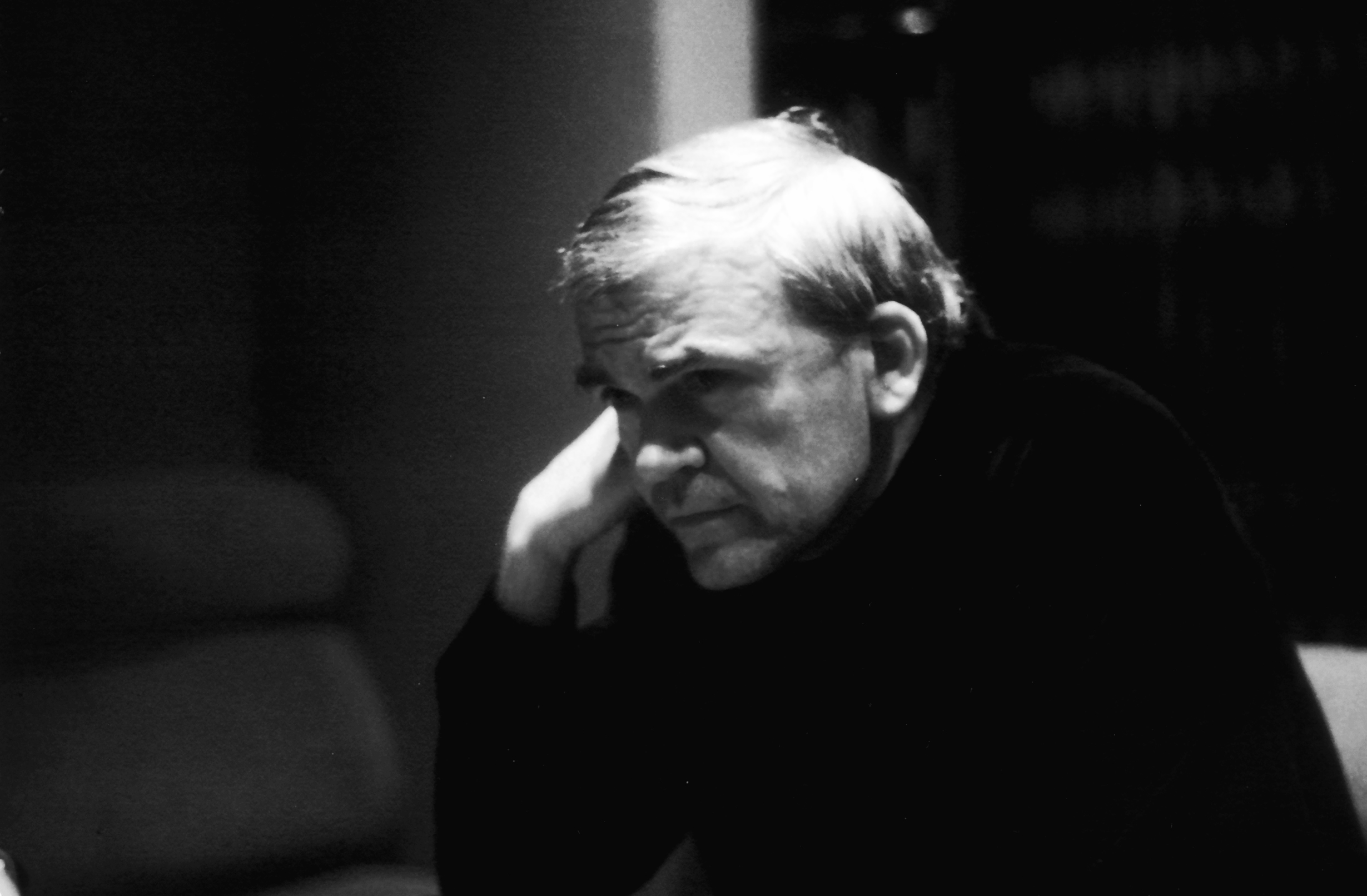To be or not to be: who is Milan Kundera?
His most commercially successful work was his 1984 novel The Unbearable Lightness of Being.

He is not the inventor of the thinking novel. But the striker. Not German, French, or British. But he is one of Europe's greatest novelists. He does not live in his country. He is the stepchild of his country. Just like Bernhard. He has a simple, straight, and programmed life. So not a poet. Communist, like every great existentialist. A communist was ostracized by the communists. That's what happens most of the time. When you paint your ideas with morals, your peers will always exclude you. A similar situation happened to Lacan in Paris. This greatest post-Freudian psychoanalyst was expelled from the Psychoanalytic Society.
Milan Kundera (born 1 April 1929) is a Czech-born French writer. Kundera went into exile in France in 1975, acquiring citizenship in 1981. His Czech citizenship was revoked in 1979 and restored in 2019. He "sees himself as a French writer and insists his work should be studied as French literature and classified as such in bookstores".
Kundera is a writer who likes to tell everything he has to say in his novels. This attitude carries his texts beyond the novel. In fact, every Kundera novel comes with a new novel definition. The classical instruments of editing are not very important to him. He just wants to stick with a story about what needs to be said. And this attitude certainly does not make him didactic. This is the part that attracts the reader the most.
Reading Kundera is like taking a course in human relations. He is a master writer, especially in conveying bilateral relations with authenticity and analysis. When speaking, the judgment does not dissipate. He's not shouting. It does not point to the truth. He's not trying to be a soldier of the truth. You can see the uncertainty, which is the place where people visit the most, in every line as a spelling rule in his novels. Trying to understand. That's all it does. But not like a therapist, like a friend.
What distinguishes him from other existentialists; is day and night balance. In the texts of other existentialist stars, the clock is always stopped at night. It's never daylight. The gloom, the dark, and the anxiety are the ace players of all of them. Kundera is not like that. His watch is not running out of battery. The clock is always running. The situation of man on earth is very tragic, yes. But Kundera isn't just stuck in that tragic atmosphere. He creates such characters that the world becomes a funny medium. Or hopeful or optimistic, or more colorful. But not completely dark.
Recently, when the Nobel Prize comes to the fore, the literary public thinks that the award should be given to Kundera. It's a fair and reasonable expectation, of course. It would be nice if given. It's worthy. Perhaps Kundera hasn't been awarded yet, as variables other than literary performance come into play in awarding writers from the periphery. And what happens when you get an award?
Those who know Kundera's famous thesis know. The slowness/speed dialectic. He says that what we forget by speeding up, we remember by slowing down. Although, personal development, one of the most fashionable ideologies of the last period, puts forward such a thesis. But it doesn't matter. Kundera is saying something real. Something that touches the human essence. Personal development is chanting slogans. It paints our eyes to blind us to the current low. “In societies that are faster than the speed of a bicycle, deformation begins.” Even if only this proposition of Kundera is taken seriously by sane people, if it is discussed as a founding proposal for a new world, it is easy to see that financial hegemony will weaken. This is the transformative power of literature.
